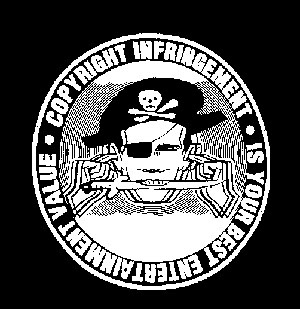 Craig Baldwin
Craig Baldwin
Wild Gunman
RocketKitKongoKit
Tribulation 99: Alien Anomalies Under America
O No Coronado!
Sonic Outlaws
Born in Oakland and raised in Sacramento, California, Craig Baldwin attended the
University of California at Santa Barbara, University of California at Davis, and
San Francisco State University (M.A., 1986). In the Department of Cinema there he
studied under Bruce Conner and became increasingly drawn to collage film
form. His interest in recontextualization of found imagery led him to the
theories of the Situationist International and to various practices of
copy-art, mail art, 'zines, altered billboards, and other creative interventions
beyond the fringe of the traditional fine-arts curriculum.
His desire to liquidate the formal distinctions between "popular" and "fine" art,
"public" and "private" imagery, and "political" and "aesthetic" categories
through a proliferation of discursive modes expressed itself in several
photo-essay, video, and Super 8mm projects previous to his first 16mm production,
Wild Gunman (20 mins., 1978). This dense montage of
cowboy iconography, advertising campaigns, and geo-political conflicts featured
playful optical printing of a (penny-arcade) motion picture amusement. Baldwin's
audio-visual argument against imperialist ideology was further developed in RocketKitKongoKit (30 mins, 1986), which utilized several
narrative voices in an accelerating cinematic broadside. His next film, Tribulation 99 (48 mins., 1991), unspooled a satiric psycho-political
rant on millenarianism, environmental apocalypse, and CIA covert action in Latin
America, with flying-saucer simulations and the hypnotic music of Yma Sumac. A
picture-book version of the work was published by Ediciones La Calavera (N.Y.C.).
The S.F. Bay Guardian bestowed their annual Goldie Award on Baldwin in
1991. His last film, O No Coronado! (40 mins., 1992),
intercuts live-action Conquistador vignettes with farcical found footage,
delirious video-to-film FX, and a time-warped musical mix in a black-comic
critique of both colonialism and the conventions of docu-drama historiography.
The S.F. Foundation recognized the effort with the 1992 James D. Phelan Award in
Film Art.
Mr. Baldwin currently serves as an independent programmer for various
arts-presenting organizations in San Francisco, while teaching part-time. His
latest production, Sonic Outlaws, is an experimental
documentary on Fair Use, "culture-jamming," and electronic folk culture,
exploring the legal, political, and artistic implications of the audio-collage of
Negativland, John Oswald, and the Tape-beatles.
Craig Baldwin Filmography

(1978), 16mm, color/sound, 20 mins.
Mobilizing wildly diverse found-footage fragments, obsessive optical printing,
and a dense "musique concrete" soundtrack, a maniac montage of pop-cultural
amusements, cowboy iconography, and advertising imagery is re-contextualized
within the contemporary geopolitical crisis in a scathing critique of U.S.
cultural and political imperialism.

(1986), 16mm film, color/sound, 30 mins.
This kaleidoscopic, amphetamine-paced tour de force uses a barrage of
found-footage images and rapid-fire narration to trace a history of Zaire since
its independence in 1960. The CIA, German munitions manufacturers, and American
popular culture are all indicted in this comic critique of neo-colonialism.
Centering on President Mobutu's lease of 1/0 of the country's total land area to
a West German rocket firm, the film explores both the explicit and implicit
historical contradictions that this astonishing arrangement poses and is posed
by. With sources of imagery ranging from corporate advertising through 50's
instructional films to Tarzan flicks, and musical components oscillating between
aboriginal sounds and contemporary electronic compositions, a critical irony is
established between the several voice-over discourses and an energetic montage of
"found" visuals. Self-reflexively ordered like a plastic model kit, the film
perhaps proposes another, more imaginative model of historiography.



(1991) 16mm film, color/sound, 48 mins.
A pseudo pseudo-documentary, obsessively organized into 99 paranoid rants,
parlaying every imaginable scrap of "found" footage, re-filmed TV, and industrial
sound into a revisionist history of alien intervention in Latin America. A
melange of satire, political fantasy, and black comedy, the film takes on
crack-pot paranoid theories, environmental deconstruction, and CIA intervention
-- and more -- all in one shot.




(1992) 16mm film, color/sound, 40 mins.
Nao Bustamante, Matthew Day and Gina Pacaldo star in Baldwin's aggressively
reconstructed Conquistador chronicle. Baldwin collages the black-comic restaging
of the 1540 European invasion of those lands now known as the American Southwest
with wildly diverse "found" imagery, video-to-film FX, and a time-warped musical
mix, to critique not only the genocidal Spanish soldiers-of-fortune but also
documentary conventions of historical representation. Animated graphics,
collateral material and multiple voices interpenetrate the epic collage,
conjugating a delirious, open-ended historiography that updates issues of
imperialism, tourism, treaty rights and environmental protection from the 16th
century to the present, and beyond.
(1995) 16mm film, color/sound, 80 mins.
Sonic Outlaws is an energized discourse on contemporary controversies
concerning copyright infringement, "fair use," and culture-jamming. Stemming from
an investigation into the infamous Negativland-U2 suit, this dense montage
of interview, music, and stock footage spirals out into the similarly inspired
activities of John Oswald, the Tape-beatles, the Emergency
Broadcast Network, the Barbie Liberation Organization, the
Situationists, and a multitude of others now working with "found" sound.
Practices of phone-pranking, billboard alteration, media-hoaxing, and the
digitalization of intellectual property, seen in light of the law in a period of
rapid artistic and technological change, foreground emerging tensions between
imagination, authorship, autonomy, and the marketplace.
Baldwin's project itself morphs from a compilation doc into a veritable collage,
likewise problematizing relations between "cover versions," homage, pastiche,
parody, and criticism. All the while it suggests methods of creative resistance
-- and perhaps the hope of an "electronic folk culture" -- in the midst of an
all-consuming electronic environment under increasing corporate control.
Note: Also check out the Sonic
Outlaws
web site!
Craig Baldwin's are films available from Canyon Cinema.






 Craig Baldwin
Craig Baldwin












